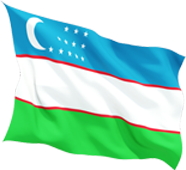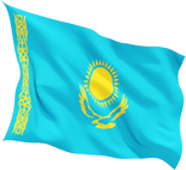Export is a driver of the economy, enabling production growth, job creation, and GDP increase. Therefore, every country strives to support businesses seeking to expand their exports to foreign markets. This article discusses the comprehensive measures of direct support for exporters in Uzbekistan.
Export support in the country is carried out systematically, strictly adhering to the goal set in the “Uzbekistan – 2030” Strategy – to increase the share of the private sector in exports to 60 percent.
Here are a few key figures: from 2017 to 2023, Uzbekistan’s total export volume reached $120 billion. In 2023, the export volume amounted to $24 billion, a 64% increase compared to 2017.
Over the past six years, Uzbekistan’s export geography has expanded to 33 new countries, increasing the number of foreign markets to 115. For the first time, Uzbek products entered the markets of countries such as Peru, Panama, Mexico, the Dominican Republic, Argentina, Albania, Serbia, Finland, Luxembourg, and others.
In recent years, the national export support system has focused on engaging entrepreneurial entities in export activities.
For instance, while about 3,000 local companies joined export activities last year, from January to October this year, 2,450 enterprises entered foreign markets for the first time, exporting products worth $1 billion.
Another element of the comprehensive approach is the creation of a favorable regulatory environment.
In recent years, important regulatory changes have been implemented in Uzbekistan to simplify and stimulate export activities.
Specifically, these include the Decree of the President of the Republic of Uzbekistan “On Measures for the Implementation of Tasks Set in the Fourth Open Dialogue Between the President of the Republic of Uzbekistan and Entrepreneurs” dated August 30, 2024, aimed at supporting small and medium-sized businesses and improving financial conditions for entrepreneurs. Now, banks can issue unsecured microcredits of up to 300 million sums (about $24,000), expanding access to capital. Tax incentives have been introduced for catering enterprises, including a 50% reduction in profit tax from 2025 to 2028, and partial VAT refunds for cashless transactions. The VAT refund procedure for exporters based on customs data has been simplified, facilitating export development and reducing administrative barriers.
The Decree of the President of the Republic of Uzbekistan “On Measures to Accelerate the Development of the Factoring Services Market” dated August 12, 2024, accelerates the development of the factoring services market in the country. It expands opportunities for non-bank credit organizations to engage in factoring, as well as extending operations with financial claims, including refinancing and working with foreign currency. The Decree also includes the creation of an electronic platform for automating the processing of applications and document checks, integrated with state systems. These measures help improve the availability of factoring services for businesses, enhance liquidity, and simplify trade and financial processes in the country.
The Resolution of the President of the Republic of Uzbekistan “On Measures to Further Enhance the Role of Entrepreneurial Associations in the Development of Foreign Trade and Regional Industry” dated March 14, 2024, aims to strengthen the role of entrepreneurial associations in the development of foreign trade and regional industry. The document provides for the support and stimulation of exports and industrial production through instruments of the JSC “Trade Development Company”, creation of technoparks, improvement of infrastructure, and expansion of financial instruments for entrepreneurs. It includes measures to strengthen partnerships between the government and the private sector to increase competitiveness in international markets and improve domestic industrial policy.
The Decree of President of the Republic of Uzbekistan “On Additional Measures to Ensure Food Security in the Republic” dated February 16, 2024, is aimed at enhancing food security in the country. The Decree includes measures to support domestic food producers through concessional loans, subsidies, and tax incentives for expanding the production and processing of agricultural products. Furthermore, special emphasis is placed on stimulating food exports, including financial support through the Trade Promotion Fund and simplifying certification processes. These steps will help improve product quality and competitiveness in foreign markets, as well as ensure the stability of the domestic food market.
The Resolution of the Cabinet of Ministers of the Republic of Uzbekistan dated February 29, 2024, establishes measures to regulate the export of fruits and vegetables. The document introduces measures to improve the control and regulation of foreign trade in agricultural products, including creating effective mechanisms to ensure high product quality, compliance with sanitary standards, and norms. The Resolution aims to increase the competitiveness of Uzbek fruit and vegetable products in international markets, as well as improve logistics and coordination of export supplies.
The Resolution of the President of the Republic of Uzbekistan No. RP-39 “On Measures for the Implementation of the Business Sustainability Rating System” dated January 23, 2024, is aimed at introducing a business sustainability rating system in the country. The primary objective is to create a system for evaluating business organizations based on key indicators such as profitability, tax compliance, financial stability, and other factors affecting business sustainability. Depending on the sustainability level, businesses will be classified into categories with high, medium, or low ratings, which will impact their access to benefits and subsidies. Special support measures, including tax incentives and accelerated VAT refunds, are provided for businesses with high ratings. This system also includes mechanisms for appealing assessment results and monitoring business performance, which should enhance transparency and build trust between businesses and the government.
As noted earlier, this work is carried out systematically: strategic goals and objectives have been set, and a regulatory framework has been formed.
Specific practical measures have been implemented to enhance the export potential of the country through active support of export-oriented enterprises.
Thus, Uzbekistan has introduced a mechanism for providing practical financial support to exporters, including:
– implementation of international standards and certification,
– registration of national products abroad,
– participation in international exhibitions and fairs,
– conducting presentations, advertising campaigns, and promoting national products and brands in promising markets.
Furthermore, according to the Presidential Resolution of the Republic of Uzbekistan dated March 15, 2024, “On Measures to Further Enhance the Role of Entrepreneurial Associations in the Development of Foreign Trade and Regional Industry”, the Export Promotion Agency was transformed into JSC “Trade Development Company”. The primary tasks of the new organization are to improve the effectiveness and efficiency of state financial support measures for foreign economic activity participants based on the Business Sustainability Rating, as well as ensuring the delivery of state funds to enterprises exporting high-value-added products and exploring new markets.
The Company also provides informational and consultative support to businesses on transport logistics, certification, standardization, quality control, tax and customs administration, and implements the “Made in Uzbekistan” program to promote national brands and products abroad. It participates in organizing and financing national, industry, and regional exhibitions and fairs.
The Company takes active measures to financially support exporters, including providing compensation for insurance premiums when using insurance services, implementing international standardization and certification systems, and registering national products and brands.
It compensates part of transport expenses, expenses related to the implementation of reporting based on international standards, opening and maintaining trading houses and warehouses, conducting advertising campaigns, expenses for attracting qualified designers, technologists, marketers, quality controllers, and agronomists, promoting prestigious international brands, and implementing international standards.
Commercial banks are allocated resources to finance pre-export and export-related trade operations.
Along with direct financial support mechanisms for local exporters, the government improves access to foreign trade networks and takes measures to facilitate entry into leading global markets.
On April 10, 2021, Uzbekistan gained the status of a beneficiary country of the “GSP+” system. This system provides preferential customs tariffs on goods exported by developing countries to the European Union and covers over 6,200 types of goods, including industrial products and some agricultural goods. In 2023, goods worth $426 million were exported under the “GSP+” system.
The main growth in exports to Europe was driven by increased supplies of various products, such as ready-made knitted garments (up 104%, +$1.1 million), urea (109%, +$2.2 million), ammonium nitrate (173%, +$3.9 million), copper products (3-fold increase, +$14 million), petroleum and gas products (111%, +$4 million), and cellulose (141%, +$2.3 million).
In 2023, support was provided to 235 exporting companies, which implemented 575 international standards and certificates, such as “ISO”, “Global GAP”, “Organic”, “GOTS”, “REACH”, “LWG”, “GRS”, “RSC”, and “SEDEX”. The total value of this support amounted to 39.3 billion sums, enabling Uzbek products to be exported to 7 major European markets: France, Lithuania, Latvia, Poland, Germany, Belgium, and Romania.
In general, the ongoing reforms in Uzbekistan to support exports provide a strong forecast for reaching the targeted volumes set in the National Strategy by 2030.
Sadullo Salakhov,
Deputy Head of the Department of the Ministry of Investments,
industry and trade












